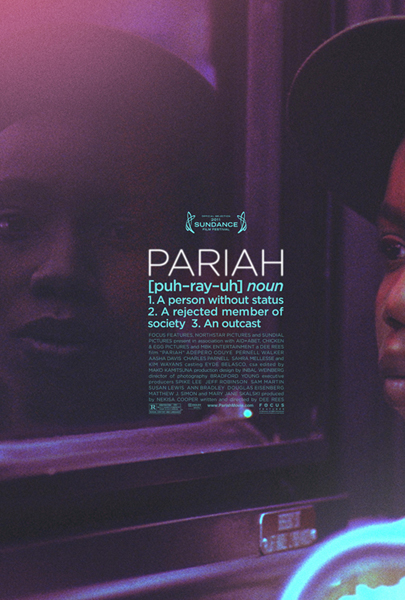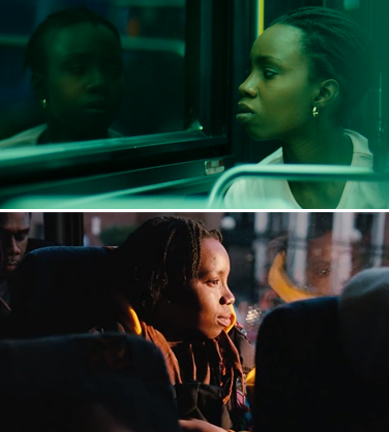Anne Marie returns after a brief break...
 Over the course of this year, the purpose of our weekly "Women's Pictures" has been to explore the vast variety of female filmmakers. We've seen that women are not only present and working, but also highly diverse in their genre, style, and subject matter. Gender has often been a factor, but it has rarely been a focus. For the last month of the year, we're going to be watching films by two directors for whom gender, sexuality, and race are their focus: Dee Rees, and Celine Sciamma. Though both filmmakers have comparatively small filmographies, they have already established themselves as new, strong voices in contemporary cinema.
Over the course of this year, the purpose of our weekly "Women's Pictures" has been to explore the vast variety of female filmmakers. We've seen that women are not only present and working, but also highly diverse in their genre, style, and subject matter. Gender has often been a factor, but it has rarely been a focus. For the last month of the year, we're going to be watching films by two directors for whom gender, sexuality, and race are their focus: Dee Rees, and Celine Sciamma. Though both filmmakers have comparatively small filmographies, they have already established themselves as new, strong voices in contemporary cinema.
Dee Rees's 2011 film Pariah, based on the short of the same name, is an empathetic examination of a person usually invisible in cinema: the young black lesbian.
Lee (Adepero Oduye) is a quiet, sensitive high schooler caught between familial expectation and self-knowledge. Every day, she leaves her house dressed in earrings and babydoll shirts, then walks to school and changes in a bathroom stall. She slips on a snapback, takes off her jewelry, and shrugs into an oversized flannel and a tank top. Her family is aware of her butch gender expression, but try to either ignore in (in the case of her father), make fun of it (in the case of her sister) or "fix" it (in the case of her mother).
While the misunderstood gay kid is so often used in LGBT cinema that some argue it borders on cliche, Pariah is not a simple coming out story. Lee's interaction with her world is as much informed by her race as her gender and sexuality. At one point, Lee asks her friend to buy her a strapon to wear. She gets a white one. The scene is mostly played for laughs - especially once Lee's sister discovers her in a compromised position. Nonetheless, it shows how Lee's race is as overlooked in the LGBT community as her gender expression is in the straight community.

I've made the film sound thoroughly academic, when in fact Dee Rees has created a beautiful and soulful film. As Lee, Adepero Oduye doesn't talk much, but her silences scream loudly in an incredible breakout role. Though tall and poised in reality, Oduye hunches her shoulders like she's protecting her heart, physically expressing Lee's vulnerability and discomfort. The cinematography by Bradford Young is both intimate and stylish, mostly concentrate in medium closeups and colored lights that highlight but don't overpower Oduye's performance. Then his camera expands out in expressiv eshots of clubs, classrooms, and streets at night, making the film as beautiful as it is painful.
Dee Rees's film is a powerful story of the pain of self-expression and self-knowledge in the face of purposeful ignorance. Though Rees tells a specific story, the sympathy with which she tells it makes it all the more understandable for anyone who has found something about themselves that their family or community rejects. Honestly, I'm surprised it wasn't on more Best Films lists in 2011. With Pariah, Dee Rees established herself as an intimate, independent director.

12/10: Bessie - Dee Rees's second feature was an HBO collaboration with Queen Latifah on legendary blues singer Bessie Smith. (HBO Go)
12/17: Water Lillies - Celine Sciamma's first film was an exploration of young love in a French summer camp. (Netflix)
12/24: Tomboy - Sciamma's second film takes on the sensitive subject of trans identity in childhood. (Amazon Prime)
12/31: Girlhood - Sciamma's latest film looks at the relationships girls develop with each other in a contempoary girl's gang. (Amazon Prime)